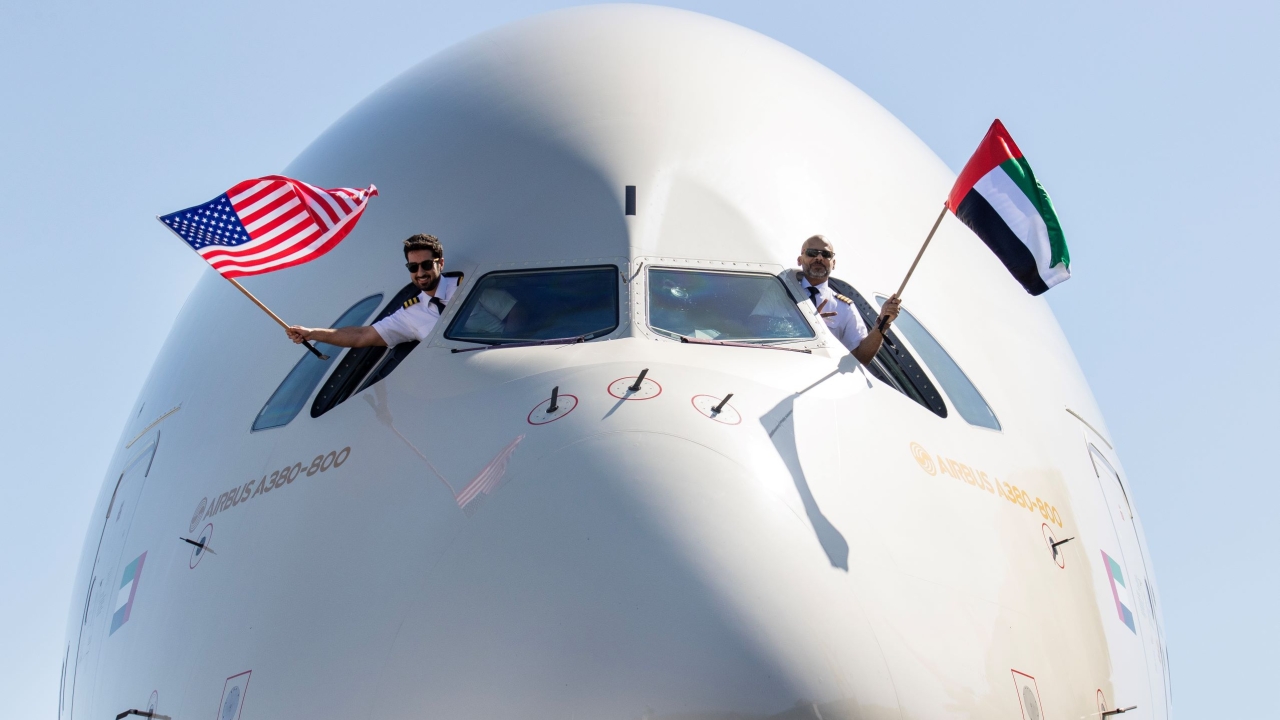Russian evolution for Alexcina launch
A new airline aims to make its appearance in the Levant this year, with an aircraft not previously operated in the region. Alan Dron reports.

If all goes according to plan, a new type of airliner is scheduled to make its appearance on airport aprons around the Middle East this year.
Alexcina Airways, based in Beirut, will start operations and build up to an ambitious network of 22 destinations in the Middle East and Europe.
It is known that the first route will be to Dubai, but details beyond that remained commercially confidential at the time of writing.
The new airline is a daughter company of Alexcina Group, which began life in the US as a small excavation company in 1990 and has since expanded into several diversified sectors including investment, solar power and military support services.
The California-based group has an aviation support division that helps to plan the development or expansion of airports. It is also involved in the purchase and leasing of aircraft and plans to buy a Boeing 737 MAX and operate a 737-800 as a freighter under its own name.
It also handles maintenance of Boeing 737-800s and Airbus A320s, as well as operating a VIP and VVIP charter business. Its Middle East headquarters is currently in Dubai.
However, its Lebanese offshoot, part of the Alexcina Aviation division, is the first time it has attempted anything as ambitious as a complete airline.
Heading the new enterprise will be Captain Fadi Ibrahem.
Lebanon is the home of Middle East Airlines (MEA). However, Ibrahem believes that MEA has had things all its own way for too long and has effectively had a monopoly on air traffic in the country. The only other local operator is Wings of Lebanon, a wet-lease and charter specialist that operates a single Boeing 737-700.
“The Lebanese market is starving for a new airline,” said Ibrahem, “because the market out there is limited to one national carrier that controls it… especially to the main destinations in Europe and the Middle East.”
A major factor in deciding to use Lebanon as its base is that Beirut has effectively become a second airport serving Damascus in war-torn Syria. The two capitals are just 45nm (85km) apart and Syrian passengers will form an important portion of Alexcina’s passenger loads, said Ibrahem. He anticipates that Alexcina will operate into the Syrian capital.
Alexcina’s choice of equipment for its planned operations is intriguing. At last November’s Bahrain International Air Show it signed a letter of intent (LoI) with Sukhoi for “up to 12” of its SSJ100 regional jets.
Asked why it had decided to buy from the Russian manufacturer, Ibrahem said cost – both capital and operational – had been major factors.
“We have chosen the SSJ100 as a regional short-range commuter aircraft because of the low cost of operations. Compared to other types, such as the Airbus A320 or A319/318, the aircraft is very efficient in fuel consumption and maintenance costs, as well as the price of the aircraft compared to others of a similar size.”
An air operator’s certificate (AOC) is expected from the Lebanese authorities this year, probably at some point over the summer.
Ibrahem said that the first SSJ100 was expected to arrive as Arabian Aerospace was going to press and that four aircraft would be delivered every four months thereafter. The aircraft will be purchased, rather than leased.
Alexcina will operate as a full-service carrier, rather than a low-cost airline, and will have the SSJ100s configured in a two-class layout. Ibrahem declined to say whether it would compete with MEA on cost or service, or whether it would serve some of the same routes as the Lebanese flag-carrier.
In a statement after the signing of the LoI, Sukhoi said the aircraft could be delivered to Alexcina Airways, or to other customers of parent company Alexcina LLC.
The Russian regional jet has proved popular with pilots, cabin crews and passengers, but has experienced maintenance difficulties, especially surrounding its Franco-Russian SaM 146 engine.
Arabian Aerospace sources say that the problems have proved frustrating on what is an otherwise impressive aircraft. “If this aircraft had a ‘Made in Kansas’ sticker on it and was backed up by Boeing, it would be a runaway success,” said one executive familiar with the situation.
Hopefully, the glitches will be worked out by the time Alexcina Airways begins operations.
Stay up to date
Subscribe to the free Times Aerospace newsletter and receive the latest content every week. We'll never share your email address.

